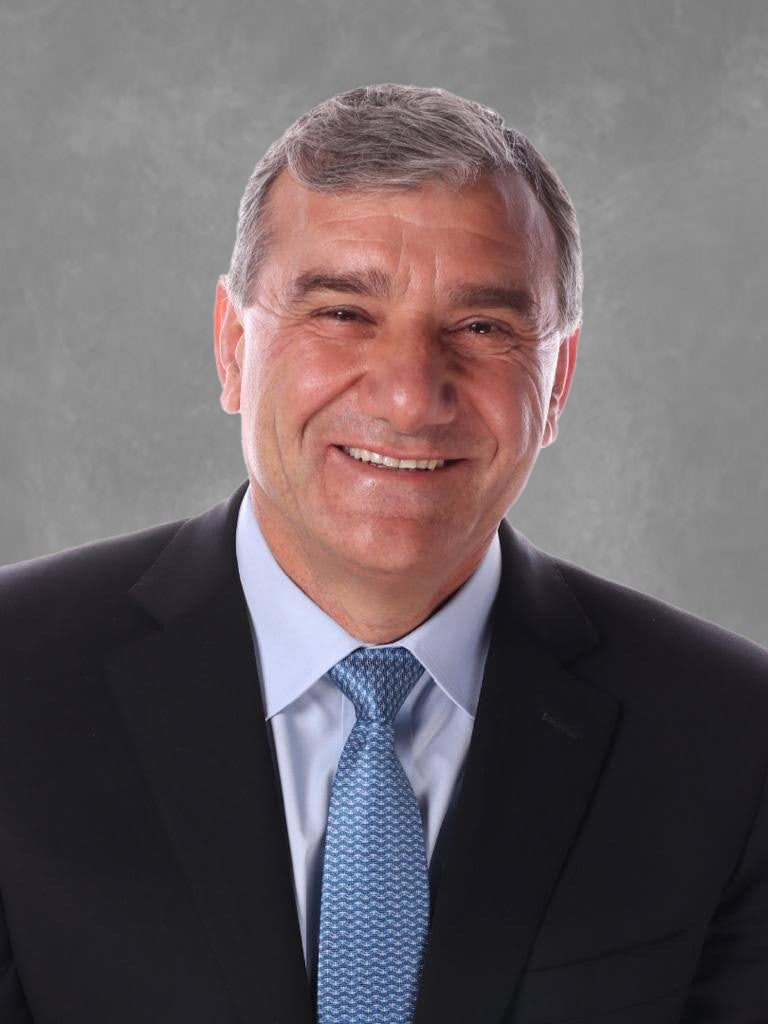
Nabil Dib, M.D., MSc, FACC is one of the world’s most renowned cardiovascular researchers and doctors. He completed his Interventional Cardiology Fellowship Program at Harvard Medical School, Beth-Israel-Deaconess Medical Center in Boston. Dr. Dib also completed an additional year in Investigational Devices at Harvard Medical School. Additionally, he continued his education at Harvard School of Public Health, where he obtained a degree in Master of Science in Epidemiology and Research, with concentration on clinical trial design and effectiveness.
He is a Professor of Medicine, President and Founder of the International Society for Cardiovascular Translational Research (ISCTR), Founder and Editor-in-Chief of the Journal of Cardiovascular Translational Research (JCTR), Director of Cardiovascular Research at Dignity Health in Phoenix, AZ, and Director of Clinical Cardiovascular Cell Therapy, at University of San Diego.
For more than 20 years, Dr. Dib has been conducting preclinical and clinical research and developing the newest investigational treatments for advanced cardiovascular disease. He has participated in over 100 clinical trials and invented and developed two medical device catheters for delivery of therapeutics, including stem cells for heart disease and drugs for cancer. He has edited three books on Cardiovascular Translational Research and directed over 13 programs on translational medicine. He is internationally known and respected for his research and work regarding the use of adult stem cells to restore the health of patients with severe heart disease.
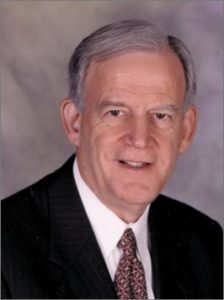
Dr. DeMaria is the Judith and Jack White Chair in Cardiology and founding director of the Sulpizio Cardiovascular Center at UCSD. He regularly participates in trials involving non-invasive methods to diagnose and treat heart disease.
Dr. DeMaria has received numerous awards and is listed in The Best Doctors in America. He served as a member of the Subspecialty Board on Cardiovascular Disease for the American Board of Internal Medicine from 1991 to 1997. Dr DeMaria was past president of the American College of Cardiology, and the youngest president to serve the College to date.
He is the Editor in Chief of the Journal of American College of Cardiology and Echocardiography. He serves on the editorial boards and acts as editorial consultant for almost 30 medical journals. He is the Director of ISCTR Scholarship Program at University of California San Diego.
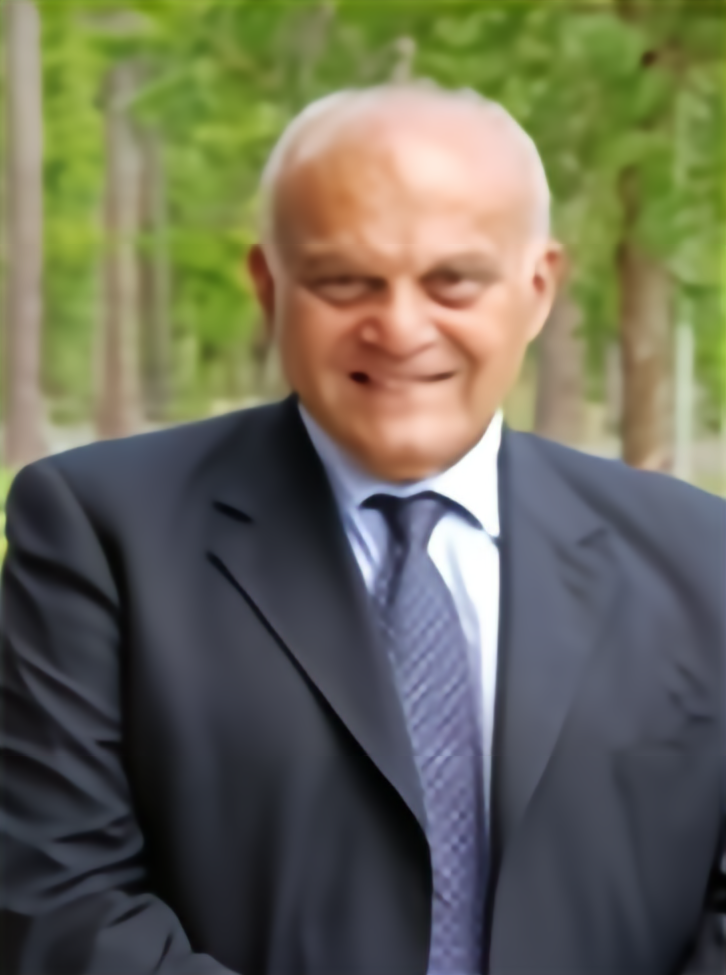
Professor Sir Magdi Yacoub, MD, FRS is reputed to have performed more heart transplants than anyone else in the world having restarted the transplant program at the Harefield in 1980. The Harefield has now performed over 2500 transplants. He is currently Professor of Cardiothoracic Surgery at Imperial College in London, leading over 60 researchers in tissue engineering, myocardial regeneration, stem cell biology, end stage heart failure and transplant immunology. He is the International Liason for the International Society for Cardiovascular Translational Research.
Dr. Yacoub is also well known for his charity work and was Knighted by Queen Elizabeth in 1991. In 1995 he founded the charity Chain of Hope, which has funded new heart surgery hospitals for children who would otherwise never get surgery in countries including Egypt, Ethiopia, Jamaica and Kenya. Dr. Yacoub leads teams of volunteers traveling to the Chain of Hope hospitals to provide training and expertise.
Yacoub’s major achievements may be summarized:
He was involved in the restart of UK heart transplantion in 1980 (there had been moratorium following the series of three performed by Donald Ross in 1968), carried out the first UK live lobe lung transplant and went on to perform more transplants than any other surgeon in the world. A 1980 patient, Derrick Morris, was Europe’s longest surviving heart transplant recipient until his death in July 2005. A March 1978 heart by-pass patient continues to live a very active and fruitful life.

A pioneer in cardiac catheterization, coronary arteriography and interventional cardiology, Dr. Spencer King III was co-developer of the multi-purpose technique of coronary arteriography and has directed invasive and interventional cardiology training for more than 150 cardiology fellows. In 1972, he became the first Director of the Cardiac Catheterization Laboratory of Emory University Hospital and in 1980 recruited Andreas Gruentzig to begin the interventional cardiology program. Dr. King was President of the American College of Cardiology (1998-1999), President of the Society for Cardiac Angiography and Interventions (1991-1992) and served as the first Chair of the Interventional Cardiology Boards of the American Board of Internal Medicine (1997-2007). He is currently Chairman of the New York State Cardiac Advisory Board and has participated on many committees of the American Heart Association, American College of Cardiology and the National Heart, Lung, and Blood Institute (NHLBI). Dr. King is author of over 600 papers on cardiology, has edited or co-edited ten books including Interventional Cardiology and Hurst’s The Heart 9th through 13th editions. He is the founding Editor-in-Chief of the Journal of the American College of Cardiology: Cardiovascular Interventions and associate editor of the Journal of American College of Cardiology. He has served as principal investigator or member of the steering committees of 15 national and international clinical trails in cardiology, as well as conducting the first NHLBI-sponsored trial of coronary angioplasty versus bypass surgery. Dr. King is chairman of the board for Mercer University (2018 – ).
His research interest has been in the area of restenosis prevention, having been a developer of radiation therapy to block restenosis, as well as new device development, evaluation of therapeutic approaches to cardiovascular disease and preventive cardiology. Honors include Master of the American College of Cardiology, the Lifetime Achievement Award of the TCT, and Honorary International Fellow of the Japan Circulation Society, the Bishop Lecture of the American College of Cardiology, the ETHICA Award of the European Society of Cardiology, the Jesse E. Edwards Lecture of the American Heart Association and Distinguished Alumnus Awards from the Medical College of Georgia and Mercer University.
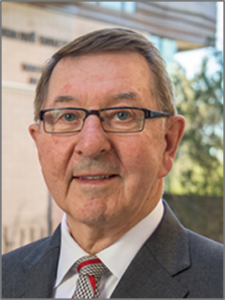
Dr. Roberts completed his undergraduate (Memorial University), Medical school (Dalhousie University) and training in cardiology (University of Toronto) in Canada. He proceeded on scholarship to the University of California and was recruited to Washington University in St. Louis as Director of the Coronary Care unit (1973-1982). In 1982 he was recruited to Baylor College of Medicine in Houston as Chief of Cardiology where he served for 23 years. He was recruited as President and CEO of the University of Ottawa Heart Institute (UOHI) where he completed two 5 year terms (2004 to 2014).
He developed the first quantitative assay for MBCK, followed by a radioimmunoassay. MBCK was used as the gold standard to diagnose heart attacks for three decades. He discovered several genes for the familial cardiomyopathies, including the first gene for atrial fibrillation, WPW Syndrome and CAD (9p21) along with co-discoverer of over 90 genetic risk variants predisposing to CAD and 95 genetic variants regulating plasma lipids. As a pioneer of molecular cardiology, he edited the first textbook on molecular cardiology. Dr. Roberts is recognized as a leader in the research and practice of cardiology worldwide. Dr. Roberts for 25 years has been associate Editor of Hurst The Heart, a leading textbook in cardiology. Dr. Roberts is Editor in Chief of Current Opinion in Cardiology, Chief Guest Editor of JACC BTS, Genomics Section Editor for JACC, Associate Editor of Cardiology Today and on the editorial board of 18 other journals. In recognition of his scientific contributions (over 900 publications) Dr. Roberts has received several prestigious awards:
He has held several leadership roles: Member NHLBI Council, American Heart Association (Board of Trustees, President Elect), the American College of Cardiology (Board of Trustees and Chair of Annual Scientific Session). He has served on several prestigious advisory boards, including: Gairdner Foundation; The Fields Institute for Research in Mathematical Sciences; Ontario Genomics Institute, Fondation Leducq of Paris and NIH-ACC Inter-Society Coordinating Committee for genomics and genetics.
Dr. Roberts has had a distinguished and prolific international career as a Cardiologist, Educator, Scientist and spokesman having lectured throughout the world including several prestigious presentations: Plenary addresses of the American College of Cardiology, (Simon Dack Lectureship), the Japanese College of Cardiology, the Japanese College of Circulation, the Australian and New Zealand Heart Association (Hall Lecture), the Canadian Cardiovascular Society, Indonesian Heart Society and the International Academy of Cardiology. In 2013 he addressed The Royal Canadian Institute for the advancement of science.
Under Dr. Roberts leadership, the University of Ottawa Heart Institute (UOHI) flourished, patient wait times decreased from 6 months to 3 weeks, diagnostic and therapeutic laboratories were added, 50 additional physicians and scientists were recruited, with an independent patient satisfaction of 98.5 (best in Ontario). He founded and directed The Ruddy Canadian Cardiovascular Genetics Centre, and established The Research Methods Centre. The research endowment tripled from 15 million to 55 million as did competitive grant funding. Under his leadership UOHI achieved world recognition for its research impact being ranked by SIR SCHIMAGO to be in the top 2% of 3,043 institutions worldwide. The future was secured with approval and funding for a $200 million expansion to the institute which was initiated in 2013 and officially opened March 23, 2018.
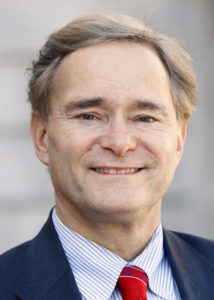
Peter Barca earned his undergraduate degree from the University of Wisconsin-Milwaukee. He attended Harvard Graduate School and went on to earn an M.A. in public administration and educational administration from the University of Wisconsin-Madison in 1983.
Barca entered politics in 1985 when he won his first election to the State Assembly, succeeding Joseph Wimmer in the 64th District. The 64th District much of the City of Kenosha and portions of the City of Racine, Town of Somers, Village of Mount Pleasant and Village of Elmwood Park.
In early 1993, President Bill Clinton appointed U.S. Representative Les Aspin to the post of Secretary of Defense, and a special election was called to fill Wisconsin’s 1st Congressional District. Barca faced perennial Republican challenger Mark Neumann and won election to the House of Representatives in the 103rd Congress.
President Clinton appointed Barca to serve as Midwest Regional Administrator to the U.S. Small Business Administration. He also served as National Ombudsman to the SBA.
Barca was also leader of the National Regulatory Fairness Program, an initiative which included more than fifty company presidents throughout the country aimed at making regulatory enforcement small business friendly. Peter serves as Secretary for the International Society for Cardiovascular Translational Research.
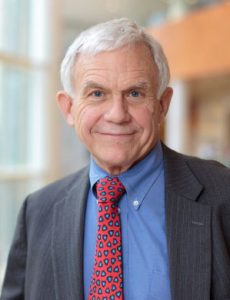
Dr. Holmes is currently a Professor of Medicine at the Mayo Clinic College of Medicine and a consultant in the Division of Cardiovascular Diseases and the Department of Internal Medicine at Mayo Clinic in Rochester, Minnesota. Dr. Holmes has also been named the Edward W. and Betty Knight Scripps Professor in Cardiovascular Medicine in Honor of Dr. George M. Gura, Jr. He was awarded an Honorary Fellowship of the Royal College of Physicians in Ireland in November 2011. He has received the Distinguished Scientist Award (Clinical Domain) from the American College of Cardiology and the Research Career Achievement Award from the Mayo Graduate School of Medicine. He is a Past President of the American College of Cardiology (ACC) as well as the Society for Cardiac Angiography and Interventions (SCAI). He has lectured widely both nationally and internationally. He has received the Herrick Award from the American Heart Association.
His special areas of interest include acute coronary syndromes, interventional cardiology, restenosis, vascular biology, and risk outcomes analysis. In addition, he has been involved in the development of new catheter designs for stroke prevention using left atrial appendage occlusion technology. He has been involved with the introduction and dispersion of transcatheter aortic valve replacement in the United States working with both ACC and the Society for Thoracic Surgery (STS). As part of that, he has been involved with regulatory agencies including FDA and CMS. Finally, he is involved in the development of continued application of percutaneous coronary intervention technology to noncoronary vascular beds.
Dr. Holmes received his medical degree at Medical College of Wisconsin in Milwaukee and completed his internship at Virginia Mason Hospital in Seattle. He also served in the United States Navy at the National Naval Medical Center in Bethesda.
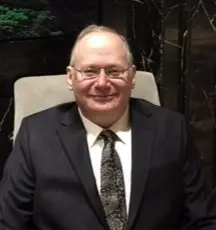
Dr. Bram Zuckerman is a 1981 graduate of the Boston University Medical School. He completed post-graduate training in internal medicine at Baltimore City Hospital and cardiology training at the Johns Hopkins program. Prior to beginning his cardiology training at Johns Hopkins, he received a National Research Service Award from NIH to study pulsatile hemodynamics. This research award provided him the opportunity to work in the laboratory of Frank CP Yin, MD, PhD during his cardiology fellowship where he learned key principles of signal analysis, fluid and solid mechanics, and hemodynamics. His research centered on investigating changes in aortic impedance and compliance in chronic animal models of systemic hypertension and atherosclerosis.
After completing his cardiology training Dr. Zuckerman became an Assistant Professor of Cardiology at the University of Colorado Medical School. His research in Colorado focused on investigating changes in pulmonary impedance and compliance associated with pulmonary hypertension. Prior to joining FDA, he also worked as a cardiologist in Northern Virginia in a private practice setting.
He joined the FDA Division of Cardiovascular Devices (DCD) as a Medical Officer/Reviewer in 1992 and soon became actively involved in development and review of clinical trials for many new cardiovascular devices. His main responsibility was in the FDA Interventional Cardiology Devices Branch and he was the primary clinical reviewer for multiple important interventional cardiovascular devices during the 1990s. In May 2001 he was appointed a Deputy Director in DCD. In September 2002 he became Director of the FDA Division of Cardiovascular Devices and was appointed Director of the newly formed FDA Office of Cardiovascular Devices in September 2017.
Throughout his FDA career he has actively witnessed the challenges associated with design and execution of appropriate medical device trials. While basic principles of drug trial design can be extrapolated to device trials, he has also observed some of the unique features associated with medical device trials. As such he has been quite interested in exploring and optimizing new avenues of clinical trial design and execution during his time at FDA. He has, for example, been an active supporter of the use of Bayesian adaptive trial designs in the regulatory setting, of increased collaboration with Japanese regulators, and has most recently assisted in development of a more efficient early feasibility study device pathway in the United States. Other areas of interest include promotion of pediatric device development and improved use of computational modeling methods in device development.
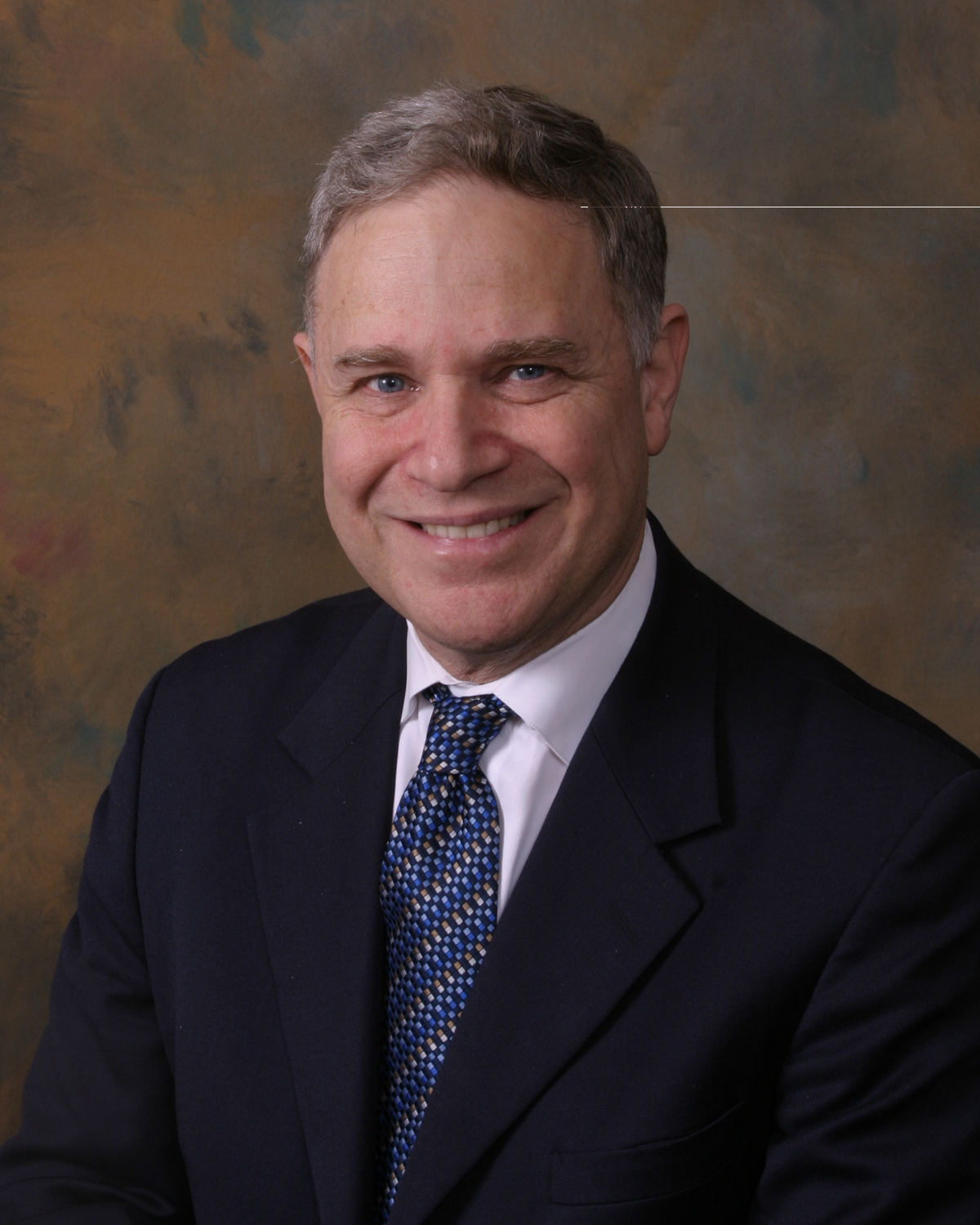
Ron Waksman, MD, FACC, Associate Director, Division of Cardiology, MedStar Washington Hospital Center (MWHC) and Director of Cardiovascular Research and Advanced Education for the MedStar Heart and Vascular Institute at the MedStar Washington Hospital Center. With over 20 years of experience in leading edge medical technologies, Dr. Waksman is a world-renowned interventional cardiologist and is a highly sought after Principal Investigator for pre-clinical and clinical studies conducted in the United States and abroad. Dr Waksman has performed over 5000 coronary interventions throughout his career.
His current research interests include brachytherapy for restenosis prevention bioabsorbable/ biodegradable stents, HDL therapy, intracoronary imaging, valvular heart disease and catheter-based treatment of renal denervation. Dr. Waksman has authored/co-authored more than 310 published manuscripts and over 230 abstracts. He is also the author/co-author of more than 20 book chapters and the editor/co-editor of six books in the field of cardiology. He serves as the Editor-in-Chief of the journal Cardiovascular Revascularization Medicine and is on the editorial boards of numerous prominent scientific journals such as the Journal of American College of Cardiology and the American Journal of Cardiology.
In addition to his clinical and research endeavors, Dr. Waksman is a professor of medicine (cardiology) at Georgetown University; he is the co-director of the Interventional Cardiology Fellowship Program at MedStar Washington Hospital Center; and the course director of the annual Cardiovascular Revascularization Therapies (CRT) meeting, an event that presents multiple, concurrent scientific meetings to medical and industry professionals in the field of cardiology. Dr. Waksman is an active member of several prominent national and international professional societies, and is the recipient of awards and honors for his expertise in brachytherapy, interventional cardiology, and clinical investigation.
He earned his medical degree from the Ben Gurion University in Israel and completed residencies in medicine, cardiology, and interventional cardiology at Hadassah University in Jerusalem, Israel. Subsequently, Dr. Waksman completed his fellowship in interventional cardiology in 1994 at Emory University Hospital in Atlanta, GA.
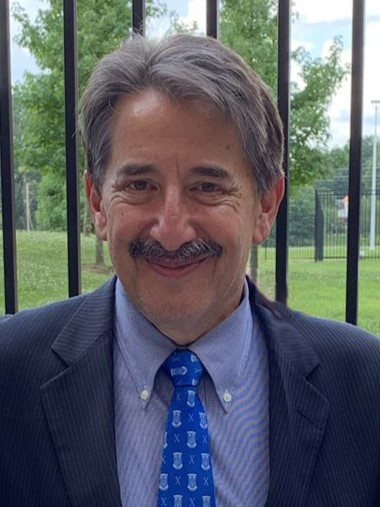
Dr. Krucoff is the Founder and Director of the Electrocardiology Core Lab at Duke Clinical Research Institute (DCRI), where he directs its interventional device trials, as well as Co-Director of DCRI’s Cardiovascular Devices Group. He also is Professor of Medicine at Duke Medical Center and directs the Cardiovascular Laboratory at the Durham Veterans Affairs Medical Center. Dr. Krucoff came to the DCRI in 1988 from Georgetown University.
He sits on the Board of Directors of the Sri Satya Sai Institute of Higher Medical Sciences in Puttaparthi, India; is senior editor of the Journal of Alternative & Complementary Medicine; and is past editor-in-chief of Alternative Therapies in Health & Medicine. He also is a fellow of the American College of Cardiology and the American College of Chest Physicians, and sits on the National Heart, Lung, and Blood Institute’s Clinical Trials Review Committee and the FDA’s Circulatory Devices Advisory Panel.
Dr. Krucoff’s research and clinical interests include acute coronary syndromes, asymptomatic myocardial ischemia, cardiac devices, eECG technologies, and cardiovascular applications of spiritual and complementary therapies.
After receiving his medical degree from George Washington University School of Medicine and Health Sciences, Dr. Krucoff completed his internal medicine internship at George Washington University Hospital and cardiology residency at Georgetown University Hospital.

Stefanie Dimmeler is Director of the Institute of Cardiovascular Regeneration, Centre of Molecular Medicine, Goethe University Frankfurt, Germany, and Chief Editor of EMBO Molecular Medicine. Stefanie is the winner of the 1.55 million euro 2005 Leibniz Prize, received her graduate and Ph.D. degree in molecular cardiology at the University of Konstanz. She then completed a fellowship in Experimental Surgery at the University of Cologne and in Molecular Cardiology at the University of Frankfurt. She is professor of Experimental Medicine and head of the Section of Molecular Cardiology at the University of Frankfurt since 2001. She is author of more than 120 papers, all of which published in highly qualified journals, including Nature, Circulation, Circulation Research, and Blood. She serves on the Board of Directors for the International Society for Cardiovascular Translational Research.
Stefanie has been investigating basic mechanisms of endothelial cell biology and endothelial progenitor cells but also tackling clinically oriented projects in vascular biology. She has been focusing on cell therapy approaches for the treatment of ischemic heart disease and the research culminated in ongoing clinical trials of cardiovascular repair with human progenitor cells. More recently, she has concentrated on micro RNA-based therapeutics for cardiovascular disease.
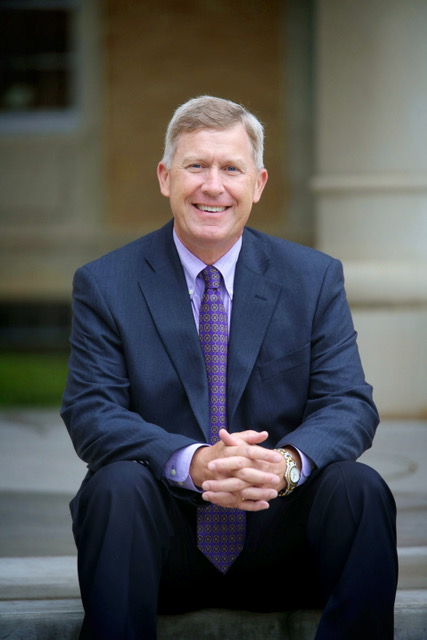
Stuart D. Flynn, M.D., is the founding dean of Fort Worth’s new M.D. school, the TCU and UNTHSC School of Medicine. The school has received accreditation and now is working through the stages on accreditation required of new medical schools. It matriculated its first class of 60 students in July 2019.
He most recently served as founding dean of the University of Arizona College of Medicine – Phoenix. Previously, he was a professor of pathology and surgery at Yale University School of Medicine as well as an accomplished researcher, director of the residency program, a leader in the design and oversight of the school’s curriculum and founding member of The Society of Distinguished Teachers at Yale.
Flynn received his medical degree and residency training from the University of Michigan and completed a fellowship in oncologic pathology at Stanford University.
Flynn has authored more than 100 articles, books and monographs. He has received numerous honors including America’s Top Physician’s Award from the Consumers’ Research Council of America, the Bohmfalk Teacher of the Year Award from Yale University School of Medicine and the Averill A. Liebow Award for excellence in the teaching of residents, also at Yale. He has been a member of the National Board of Medical Examiners Pathology Test Committee and USMLE Step I Test Material Development Committee.

After earning a Bachelors of Sciences degree from Cornell University in Applied and Engineering Physics, Dr. Burkhoff obtained Doctor of Philosophy and Medical degrees from The Johns Hopkins School of Medicine and completed a fellowship in Cardiology at The Johns Hopkins Hospital. Dr. Burkhoff then moved to Columbia University in the City of New York where he established and ran the Cardiovascular Research Laboratory through 2003 and then the Director of the Jack Skirball Center for Cardiovascular Research of the Cardiovascular Research Foundation through 2005. He then focused on development and research of medical devices in his capacity as Medical Director of several startup companies including, most recently, CircuLite which was recently acquired by HeartWare. Dr. Burkhoff is also Adjunct Associate Professor of Medicine at Columbia University Medical School. Dr. Burkhoff is the author of many original articles, invited reviews and book chapters on cardiology spanning his research interests in basic and clinical aspects of ventricular mechanics, cardiovascular monitoring, heart failure, device and pharmacologic treatments for heart failure, including left ventricular assist devices. He is also author of Harvi, an interactive simulation-based educational mobile application available for the iPad for teaching ventricular mechanics and hemodynamics.
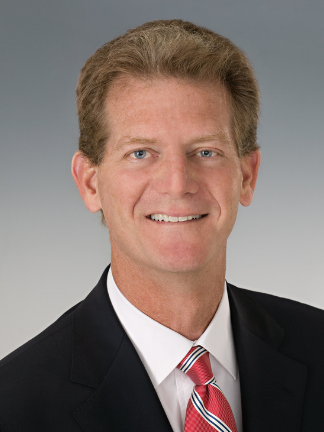
Dr Chuck Simonton is an interventional cardiologist who received his MD degree from Harvard Medical School, did residency at University of California San Francisco, cardiology fellowship at Duke University Medical Center, and then practiced for 20 years in interventional cardiology at the Sanger Clinic, Carolinas Healthcare System (now Atrium Health) in Charlotte, NC. He founded and directed the interventional cardiology research program, Carolinas Cardiovascular Research Foundation, and the regional Advanced Cardiovascular Interventions (ACI) symposium for 17 years. He was principle investigator for many clinical trials and an educator, lecturing and performing live case demonstrations at major symposia around the world (TCT, JIM, CTO Summit).
In December 2007 he took the position of Chief Medical Officer at Abbott Vascular which he held for close to 12 years. During that time he led Abbott’s presentations at three major FDA advisory panels which led to product approvals in all three cases: carotid stents, MitraClip, and the Absorb BVS scaffold. He had deep involvement in all clinical trials, R+D, regulatory, health economics and reimbursement, and business development, in addition to global field support and physician advisories.
Chuck retired from Abbott in August 2019 and is now sole proprietor of PCICHUCK LLC, a consulting business for med tech. He continues to pursue opportunities that will help bring new technologies addressing important unmet clinical needs in the cardiovascular space.
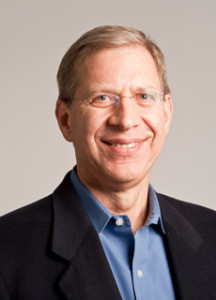
Mr. Stanton J. Rowe is CEO of Nidus Biomedical, a medical device incubator in Southern California. Mr. Rowe was previously the CEO of NXT Biomedical, the predecessor of Nidus Biomedical. Mr. Rowe was the Chief Scientific Officer of Edwards Lifesciences Corp. for 15 years and served as its Corporate Vice President of Advanced Technology.
Mr. Rowe was a founder and served as the President and Chief Executive Officer of Percutaneous Valve Technologies Inc. (PVT). This company developed the first TAVR device, sold to Edwards in 2004.
He served as the Corporate Vice President of Business Development and Strategic Planning at Datascope Corp. Prior to this, Mr. Rowe served as a Vice President of Advanced Technology and Business Development at Johnson & Johnson’s Interventional Systems Division (JJIS), responsible for Johnson & Johnson’s coronary stent development efforts. At JJIS and the related Cordis Corporation, he held a variety of positions with increasing levels of responsibility, including heading Johnson & Johnson’s Business Development, Advanced Technology, Worldwide Clinical Research and Marketing groups. Mr. Rowe joined Cordis after having held several positions in product management for various medical device companies.
He serves as a Director of Gradient Denervation, Anuncia Medical, Vivifi Medical, and the Discovery Science Center in Orange County. He served as a Director of NovaSignal, Biomerix Corporation, PQ Bypass, Zift Medical, InSeal Corp, and Remon Medical.
Mr. Rowe has served numerous Biomedical Engineering Advisory Boards at UCI, UC Davis, Texas A&M, Brown University and Georgia Tech. He holds a Bachelor’s Degree and a DSc (honoris) from the University of Alabama.

Mr. Ward is a Managing Director at SightLine Partners. Mr. Ward has over 30 years of experience in the healthcare industry, including 15 years as an operating business leader. He was most recently Senior Vice President and President of the CardioVascular business of Medtronic Inc., responsible for all worldwide operations of the CardioVascular Business including the Coronary, Peripheral, Endovascular, Structural Heart Disease and Revascularization and Surgical Therapies Businesses. Previously, Mr. Ward served as Senior Vice President and President of Medtronic Neurological and Diabetes, with responsibility for the global Neurological, Neurologic Technologies, Diabetes, Gastroenterology and Urology businesses; Vice President and General Manager of the Medtronic Drug Delivery Business; and Director of Medtronic NeuroVentures. Mr. Ward is the Founder of Raymond Holdings, a firm with activities in venture capital, strategy and transactional advisory services. He is Chairman of the Board of Cardiovascular Systems and Creganna-Tactx Medical Devices. He also serves on the Board of Impedimed, Inc and numerous venture stage medical technology companies.
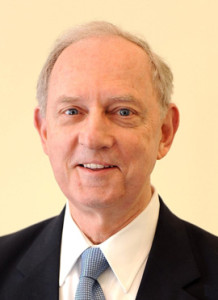
Dr. Robert O. Bonow is the Goldberg Distinguished Professor of Cardiology at the Northwestern University Feinberg School of Medicine, where he is Vice Chairman of the Department of Medicine and Director of the Center for Cardiovascular Innovation. He received his MD degree from the University of Pennsylvania School of Medicine. His past positions include Senior Investigator at the National Heart Lung and Blood Institute from 1980 to 1992, where he was Deputy Chief of the Cardiology Branch, and Chief of the Division of Cardiology at Northwestern University from 1992 to 2011. He has authored or co-authored 510 papers in the medical literature and 110 book chapters. He serves on the editorial boards of 12 medical journals and is one of the four editors of Braunwald’s Heart Disease: A Textbook of Cardiovascular Medicine.
Dr. Bonow is past-President of the American Heart Association, a Master of the American College of Cardiology and a Master of the American College of Physicians. He has served on the Board of Trustees of the American College of Cardiology, the Board of Directors of the American Heart Association, the Subspecialty Board on Cardiovascular Disease of the American Board of Internal Medicine, the Board of Extramural Advisors of the National Heart, Lung and Blood Institute, and the Clinical Research Roundtable of the Institute of Medicine.
Among his honors are the NIH Director’s Award, the U.S. Public Health Service Commendation Medal and Outstanding Service Medal, and elected membership in the American Society for Clinical Investigation and the Association of American Physicians. He is the recipient of the Distinguished Leadership Award, Distinguished Achievement Award, Gold Heart Award, and James B. Herrick Award of the American Heart Association; the Distinguished Fellowship Award and Distinguished Service Award of the American College of Cardiology; the Denolin Award of the European Society of Cardiology; and the John Phillips Memorial Award of the American College of Physicians. An endowed chair was established in his name at Northwestern University in 2012.
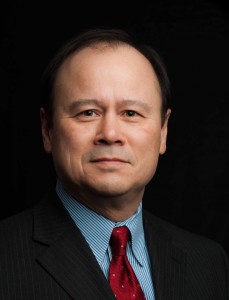
Louis B. Jacques, MD, is Chief Clinical Officer and a Senior Vice President at ADVI, where he is also a partner. ADVI is a health care advisory services firm with offices in Washington DC, Austin, and San Francisco. Before joining ADVI in 2014, Dr. Jacques was the Director of the Coverage and Analysis Group (CAG) in the Centers for Medicare & Medicaid Services (CMS) from 2009 – 2014, where he managed Medicare fee for service coverage policy development on technologies as diverse as molecular diagnostic testing, advanced imaging, chemotherapeutics, wound care, and screening and preventive services. From 2004 – 2009 he was a division director within CAG.
Before joining CMS in 2003, he served as the Associate Dean for Curriculum at Georgetown University School of Medicine; where he also saw patients at the Lombardi Cancer Center in his practice of hospice and palliative medicine. Jacques also made volunteer home visits for a hospice on Maryland’s Eastern Shore. While in active clinical practice he was a diplomate of both the American Board of Hospice and Palliative Medicine and the American Board of Family Medicine. He recertified his Family Medicine boards in 2013.
Louis earned his undergraduate degree in 1978 from Georgetown University and his MD in 1982 from the University of Maryland. After completing his residency in family practice he served in a National Health Service Corps assignment in a Waterloo Iowa community health clinic. Before returning to the Washington DC area he worked in Detroit with the Henry Ford Medical Group and joined the faculty of the Wayne State University School of Medicine.
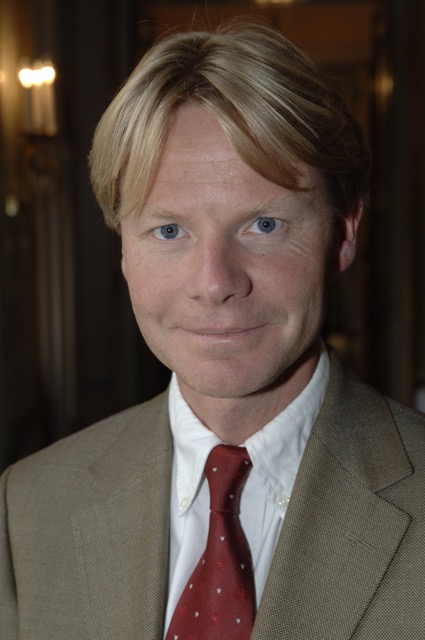
Jeroen J. Bax, MD, PhD, is Professor of Cardiology and Director of Noninvasive Imaging at Leiden University Medical Center in Leiden, The Netherlands, where he received his medical degree (1992) and performed his cardiology training (1996-2002). Dr. Bax received his PhD from the Free University in Amsterdam (1996), on the topic of “Detection of myocardial viability with I8F-Fluorodeoxyglucose and single photon emission computed tomography”. Since then, he supervised more than 40 PhD fellows, on different topics related to the use of non-invasive imaging in clinical cardiology. He served as President of the European Society of Cardiology (ESC, 2016- 2018). Dr. Bax has long served the ESC in numerous capacities, including chair of the Cardiology Practice Guidelines Committee, Chair of the Scientific Program, Chair of the Press Committee, Co-Chair of two International Conferences on Nuclear Cardiology (ICNC), and Co-Editor of two ESC books on cardiac imaging. He is a Fellow of the ESC as well as the American College of Cardiology. In 2008, Dr. Bax was honored with a Silver Medal from ESC and the Douglas P. Zipes Award from the American College of Cardiology. Currently an Associate Editor of the European Heart Journal and a Section Editor for Up to Date, Dr. Bax sits on the editorial boards of many professional journals and previously was an Associate Editor for the Journal of the American College of Cardiology. Widely published, Dr. Bax’s major research interest is in applying various noninvasive imaging techniques in clinical cardiology, including coronary artery disease, arrhythmias, and heart failure.

Pieter Kappetein, MD, PhD, is Chief Medical Officer and Vice-President of Coronary, Structural Heart and Cardiac Surgery of Medtronic. Before joining Medtronic, he was a Consultant Cardiothoracic Surgeon and Professor at the Thoraxcenter at the Erasmus Medical Center in Rotterdam, The Netherlands. He was Secretary General of the European Association for Cardio-thoracic Surgery for 9 years, President of CTSnet and member of the Board of the Society of Thoracic Surgeons and chairman of the International Cooperation committee of the STS in the USA. Besides this he was member of the Editorial Board of the Annals of Thoracic Surgery and Eurointervention.
His clinical interests include aortic valve surgery, indications, outcome and innovations in transcatheter aortic and mitral valve replacement and repair, coronary surgery. He is interested in education, and epidemiology. He was co-principal investigator of the SYNTAX and EXCEL trial (comparing coronary surgery with drug eluting stents) and member of the steering committee of the SURTAVI trial on percutaneous valves and the RESHAPE trial: the evaluation of the Mitraclip in patients with heart failure. He was also member of the steering committee of the Re-align trial on Dabigatran in patients with mechanical heart valves.
He was project leader of the ‘One valve for life” research program, a study together with the Technical University in Eindhoven and the University Hospital in Utrecht, developing a tissue engineered heart valve.

The Director and Founder of TCT, Martin B. Leon, MD, is Professor of Medicine at Columbia University Medical Center, Director of the Center for Interventional Vascular Therapy, Director of the Cardiac Catheterization Laboratories, and on the Executive Board of the Columbia NewYork-Presbyterian Heart Valve Center. Dr. Leon is also the Founder and Chairman Emeritus of the Cardiovascular Research Foundation. Dr. Leon has served as principal investigator for more than 50 clinical trials that have helped shape the field of interventional cardiovascular medicine, including the PARTNER trials on transcatheter valve therapy for patients with aortic stenosis. Recognized with 10 international career achievement awards, Dr. Leon has co-authored more than 1,550 publications, performed more than 10,000 interventional procedures, led more than 100 international educational programs in interventional cardiology, and had a major impact as a thought leader and innovator in interventional cardiovascular device and drug therapies.
Dr. Leon completed a fellowship in Cardiology at the Yale-New Haven Hospital. He completed medical school at the Yale School of Medicine, and his internship and residency in internal medicine at the Yale-New Haven Hospital. He was previously the Director of Cardiovascular Research and Education at the Lenox Hill Heart and Vascular Institute in New York and the Director of Clinical Research at the Washington Cardiology Center at the Washington Hospital Center and Clinical Professor of Medicine at Georgetown University Medical Center in Washington, DC. Earlier in his career, he served as a Clinical Associate, Senior Investigator, and Director of the Catheterization Laboratories in the Cardiology Branch of the National Heart, Lung and Blood Institute at the National Institutes of Health.
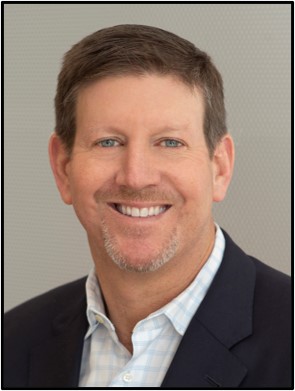
Todd J. Brinton, M.D., joined Edwards as corporate vice president, advanced technology and chief scientific officer in February 2019. Dr. Brinton has significant experience as a champion of cardiovascular innovation, as well as a strong patient focus as a practicing clinician. He has deep ties to the medical technology community as a co-founder, board member and advisor to a number of start-up companies. Dr. Brinton began his career as an engineer in the medical technology industry, ultimately becoming a director of clinical research and development, prior to enrolling in medical school. Before joining Edwards, he was clinical professor of medicine (cardiology) and adjunct professor of bioengineering at the Stanford University School of Medicine. He has been an attending interventional cardiologist at both the Stanford University Medical Center and the Palo Alto VA Medical Center. He has served as the fellowship director at the Stanford Byers Center for Biodesign since 2006 where he has worked with numerous teams on the development of new technologies. In addition, he serves as the co-director for both the graduate and executive education programs at the center. Dr. Brinton received his bachelor’s degree from the University of California, San Diego in biomedical engineering. He earned his medical degree from the Chicago Medical School, and completed his internship, residency, and fellowships in both cardiology and interventional cardiology at Stanford.
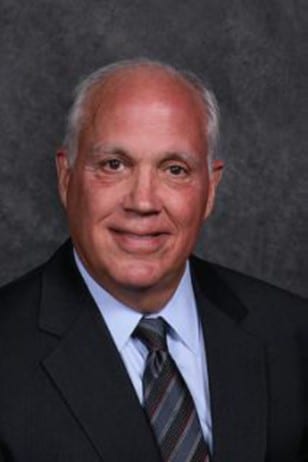
John Laschinger is the Chief Medical Advisor for W. L. Gore Cardiac Medical Products focusing on advancing the strategic development and investment priorities of Gore’s portfolio in the structural heart medical device space. Prior to this, he was at the FDA for 9 years where he served as the Chief Medical Officer for the Office of Clinical Evidence and Analysis and as a Medical Officer in the Structural Heart and Interventional Cardiology Device Branches. During his tenure, he was a leading expert within the Agency on the use of real world data and evidence, served on the writing committees of numerous Final FDA Guidance and ARC documents, and functioned as FDA’s liaison to several outside academic societies, registries and organizations. He was also the primary clinical reviewer for a wide range of IDE Clinical Trial submissions and numerous Pre-Market Applications for FDA approved medical devices including 2nd generation drug eluting coronary stents, temporary pediatric and adult ventricular assist devices, catheter based devices for the treatment of heart failure, catheter based devices for the treatment of congenital heart defects, and catheter based devices and accessories for the treatment of aortic, pulmonary and mitral valvular heart disease. Dr. Laschinger received his medical education at The Ohio State University, followed by residencies in both General Surgery (New York University) and Cardiothoracic Surgery (Washington University), and fellowship training in Pediatric Cardiac Surgery (Hospital for Sick Children, Toronto). His clinical career prior to joining FDA spanned 20 years including the full range of adult, pediatric and heart and lung transplant surgery in both academic (Assistant Professor in Cardiothoracic Surgery at University of Maryland; Associate Professor of Cardiothoracic Surgery and Pediatrics at Johns Hopkins) and private practice settings. He maintains Certification by The American Board of Thoracic Surgery.
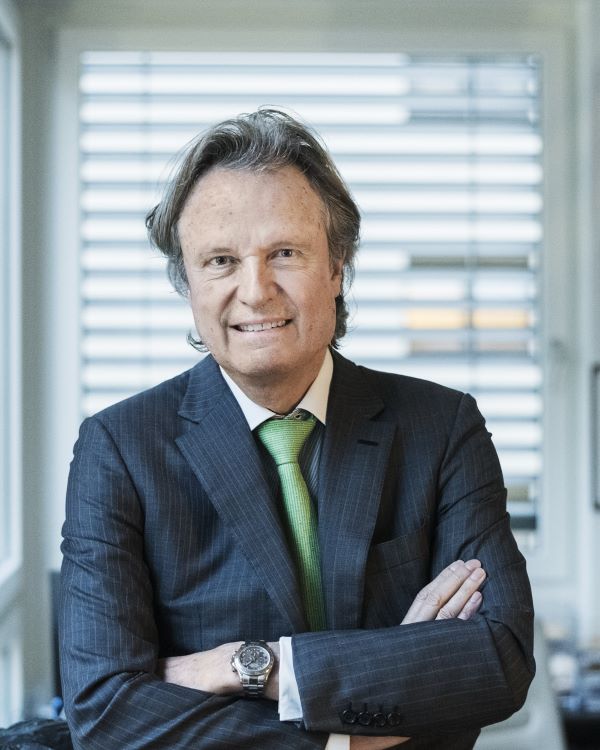
Professor Lüscher studied medicine at the University of Zurich and obtained board certification in internal medicine and cardiology in Switzerland and is now GMC certified.
He trained at the Mayo Clinic in Rochester, MN, USA in cardiovascular physiology and cardiology and was Professor of Pharmacotherapy and Director of Clinical Pharmacology at the University and University Hospitals Basel. He was Professor of Cardiology at the University of Berne, Vice-Chairman of Cardiology at the Inselspital Bern, Professor and Chairman of Cardiology, and Director of the University Heart Center at the University Hospital Zurich, Switzerland until 2017. Since 2017, he is Director of Research, Education & Development and consultant cardiologist at the Royal Brompton & Harefield Hospitals and Professor of Cardiology at the Imperial College and Kings College in London, U.K. He also holds a parttime commitment as Chairman of the Center for Molecular Cardiology at the University of Zurich (see www.cmc.uzh.ch).
Professor Lüscher has been mentor of numerous physicians and scientists from around the world in Switzerland and the U.K. with many holding chairs or directorships at universities and major hospitals in Switzerland, Europe, Asia and North America. His research is translational in nature and focuses on endothelium-derived mediators, risk factors such as aging, hypertension, lipids and inflammatory pathways in athero- sclerosis, coronary artery disease, acute coronary syndromes and heart failure. He is among the 0.1% most cited scientists worldwide with a h-index of 151 (ResearchGate).
He is an editor of the ESC Textbook of Cardiovascular Medicine (Oxford University Press 2019) and the Module Innere Medizin (Springer Verlag, Heidelberg, FRG) and of the Manual of Cardiovascular Medicine (Oxford University Press 2022). He was editor-in-chief of the European Heart Journal 2009-2020 (IF 29.9) and continues to be involved as senior editor. He is now secretary/treasurer of the European Society of Cardiology and just has been elected ESC President Elect for the board of 2022-2024.
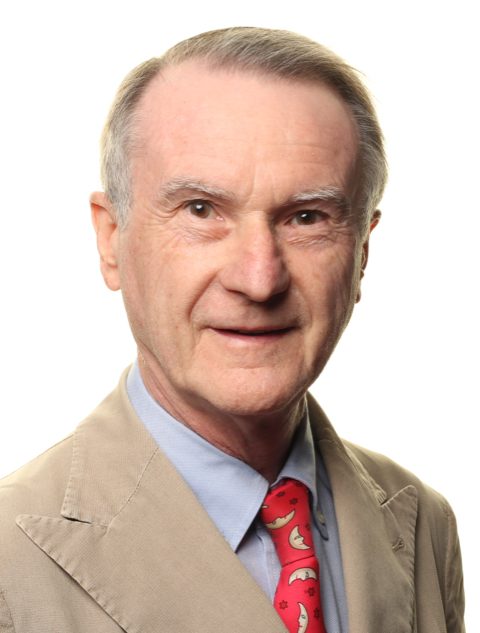
Antonio Colombo is Senior Consultant at Humanitas Clinical Research Hospital, in Milan, Italy and Director of Cardiac Catheterization Laboratory in Columbus Hospital in Milan, Italy. Prof. Antonio Colombo has been General Coordinator of GVM- Care and Research Group, Cardiac Laboratories in Italy for the past two years and Director of Invasive Cardiology at San Raffaele Scientific Institute and Professor of Cardiology at University Vita e Salute in Milan for the past 20 years. Prof. Colombo performed landmark work in the field of coronary stenting, intravascular ultrasound and stent thrombosis. He has been one of the early initiators of TAVI procedures in Italy refining some aspect of this procedure. Antonio Colombo is on the Editorial Board of all major Cardiology and Interventional Cardiology Journals. He received several recognitions including the TCT Career Achievement Award and the PCR Ethica Award. He published over 1000 papers in peer review journals, several books in the field of coronary interventions and contributed with chapters in the most important Interventional Cardiology books.
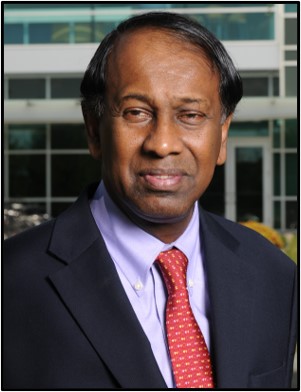
Dr. Ajit Yoganathan is a Member of the National Academy of Engineering, Emeritus Regents’ Professor and the Wallace H. Coulter Distinguished Faculty Chair at the Wallace H. Coulter School of Biomedical Engineering, Georgia Institute of Technology & Emory University.
For over 45 years Dr. Ajit Yoganathan has been a pioneer in basic and translational cardiovascular research, especially experimental and computational fluid mechanics as it pertains to artificial heart valves, the whole heart, and congenital heart diseases. His work involves the use of optical techniques such as laser Doppler velocimetry, digital particle image velocimetry, and clinical tools such as cardiac ultrasound and magnetic resonance imaging to non-invasively study and quantify blood flow patterns and parameters in the cardiovascular system, both on the bench and in vivo. In his effort to take an interdisciplinary and translational approach to his research, Dr. Yoganathan has established collaborations with clinicians, scientists, and industry professionals world-wide and has played an important role in the development of U.S. and international standards for cardiovascular devices as Chair of the Cardiovascular Sub-Committee (SC2), International Standards Organization Technical Committee (TC 150) on Implants for Surgery since 2005. He has published over 40 book chapters and 450 peer reviewed articles in leading scientific journals; has given over 300 invited talks around the world; has more than 20 issued patents; and has mentored more than 50 doctoral students, 35 masters’ students, and 40 post-doctoral trainees. Dr. Yoganathan has received a number of high honors and awards including membership to the prestigious National Academy of Engineering, the ASME H. R. Lissner Award in Bioengineering; the ASEE Theo Pilkington Award for Biomedical Engineering Education; the BMES Robert A. Pritzker Distinguished Lectureship Award; the AIMBE Professional Impact Award for Education; the Heart Valve Society’s Inaugural HVS Lifetime Achievement Award; and AAMI Foundation’s Laufman-Greatbatch Award. He is also a Founding Fellow of the American Institute of Medical and Biological Engineering (AIMBE), an Honorary Fellow of the American Association of Thoracic Surgery (AATS), and a Fellow of both the American Society of Mechanical Engineers (ASEE) and the Biomedical Engineering Society (BMES).
It is noteworthy to mention that since 1975, all prosthetic heart valves implanted in the U.S. – more than two dozen valve designs – have been studied and evaluated in Dr. Yoganathan’s Cardiovascular Fluid Mechanics lab.

Kenneth Stein, MD, FACC, FHRS is currently senior vice president and global chief medical officer at Boston Scientific. In this role he has oversight for the clinical trials, medical safety and medical affairs functions for Rhythm Management, the Global Clinical Operations (GCO) team and Global Medical Affairs team and is responsible for ensuring a cohesive clinical community of practice across the company. Dr. Stein also represents the clinical voice for our investor audiences.
Ken is a Phi Beta Kappa graduate of Harvard College (in Economics) and earned his MD from New York University School of Medicine. He completed his medical internship and residency at The New York-Presbyterian Hospital/Weill Cornell Medical Center, where he also completed his cardiology and cardiac electrophysiology training. Previously, he was the company’s senior vice president and chief medical officer, Rhythm Management and Global Health Policy, a role he served in from September 2009 to January 2023. Prior to joining Boston Scientific, Dr. Stein held the position of Associate Director of Clinical Cardiac Electrophysiology at Weill Cornell Medical Center and Associate Professor of Medicine at Cornell University. Dr. Stein is widely published, having authoring over 150 peer- reviewed scientific publications in the areas of cardiac electrophysiology with special interests in cardiac resynchronization therapy and risk stratification for sudden cardiac arrest. Since 2013, he has also served on the board of Childrens HeartLink, a registered 501c(3) nonprofit organization that trains and mentors medical teams in underserved parts of the world to diagnose and treat children with heart disease. Founded in 1969, Children’s HeartLink currently supports partner hospitals in Brazil, China, India, Malaysia, Ukraine and Vietnam.
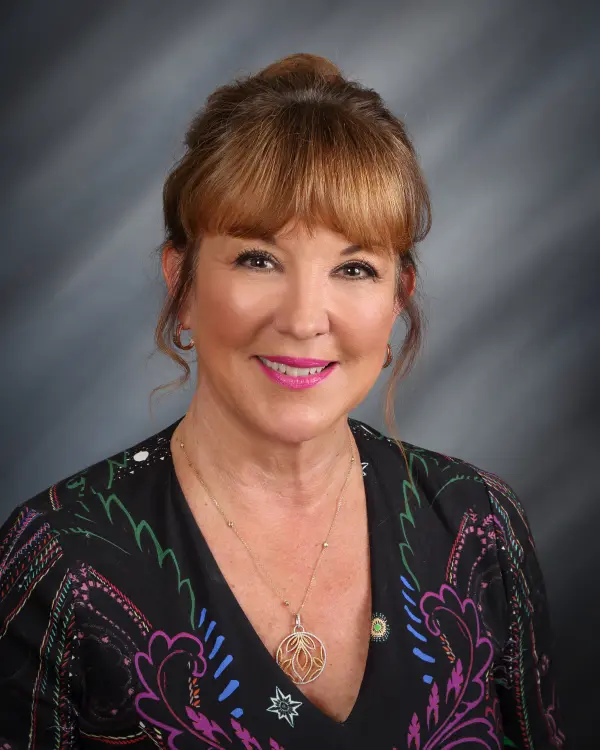
Laurie was the CEO of the Sacramento Division of CommonSpirit Health for seven years. She was responsible for the operations and strategic planning for six hospitals, with over 8000 employees and 600 physicians. She was responsible for a budget of 2.6 billion in net revenue. After retiring from CSH, she was hired for the Pacific Northwest Division for the integration of Virginia Mason into CommonSpirit Health. That required restructuring of the senior and executive leadership teams into one team as well as many other initiatives to gain synergies to make the merger a success. She also has extensive experience with fundraising, community relations and has chaired various board committees.
Laurie enjoys working with high performing management teams that have a bias for action, driven by results, and focused on growth and the use of technology to provide more efficient operations. She recently expanded the use of technology using virtual visits during the COVID pandemic to over 100 visits per week. She also assisted with the expansion of telehealth services for primary and specialty care to hospitals and systems outside of Sacramento.
Board Experience includes:
Laurie is married with two grown children and five grandchildren. She is starting her own mosaic glass art business and enjoys deep sea fishing with her husband.